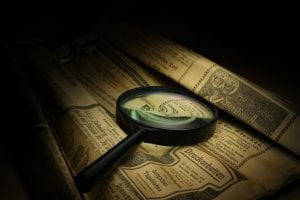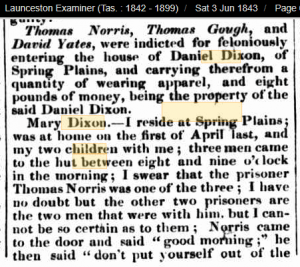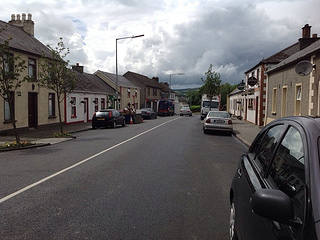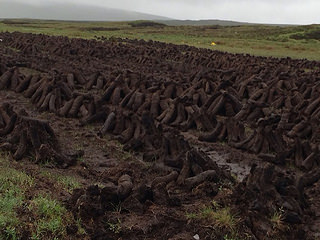Welcome to the fifth ANZAncestryTime twitterchat summary. As you can see by the title, this week we looked at newspapers and how they can help and have helped in researching our family history. We had the normal 4 questions but I am writing the summary up in a slightly different format.

Questions:
- Which newspaper sites have you found helpful in your family history research and what do you like about these sites?
- What tips and tricks do you find useful for newspaper searches?
- What information have you found in newspapers that you would not have found in other records?
- What online archives, libraries and other e-resources do you use to access newspapers?
As we are mainly an Australian and New Zealand group of genealogists, the answer to the first question was usually Trove and PapersPast.
Trove is run by the National Library of Australia
Trove contains the Australian digitized newspapers and gazettes but also many other resources such as music, diaries, magazines etc mentioned in the following categories. This video on the main Explore page shows how to use information in Trove to tell a story. Checking out the Help page gives clues to searching, navigating and the categories. It also includes links to a How To video about Trove as well as a video and notes about searching the newspapers. These are well worth the time watching to get the most out of your use of Trove.
PapersPast is the New Zealand equivalent, also run by their National Library.
Looking at the about page explains how things are divided on the website and includes a list of Maori newspapers and magazines. Looking at their Help page gives lots of tips and hints on how to get the best out of your searching on the website. Many of these hints will work for any newspaper or even Google search. On the lead newspaper page you will also find a list of the most recent papers uploaded to PapersPast website.
Tips and tricks for getting the most out of researching a newspaper
Jill: When searching for a married female do a search with maiden name and Nee. This may find marriage & engagement announcements and births of children.
Fran: I start a search with newspapers in my ancestors location and extend to cover all NZ newspapers as many places reported the same stories. Print might be better on others or additional news
Jennifer: When researching married female ancestors, search for Christian name and also ‘Mrs’
Jill: Read the info on how to search each database. They are not all the same
Maggie: Wild cards are your friends! Plus, search by place name, related surnames, events, not just by an ancestor’s name. Cast your net wide.
Sue: use Boolean logic with + and – signs when searching
Pauleen: It’s useful to search widely by place (unless it’s a big city) and topic (eg petty sessions) rather than name because sometimes the OCR just doesn’t work well.
Alona: use a surname but add in a place, or occupation as it can help narrow it down
Fiona: Remembering that not all newspapers are online and checking the library for other local newspapers
Sharn: When I search for a person with a common name I use the name and identifying information ie place or occupation i.e. John Morrison “Builder” or John Morrison “Strathfield” and then I search with initial J Morrison “Builder” etc
Jill: Throwing the word Pioneer in often helps a name plus place search
Hilary: I always narrow down my search if I can and get familiar with the local papers as others publish the same story but often shorter version
Carmel: have a list of variety of spelling for each name to be searched, substitute letters, sometimes just search the place and timeframe
Alona: don’t expect to find full names (well occasionally you might, but it is rare) – often Mr, or Mr with initials, or Mrs with husbands initials
Sue: If going to use the newspaper in a blog article, know how to use the snipping tool and to move the article under the paper name etc, Also know the direct link for the article
Angela: keep search terms simple. Simply a name or a place name. Put in my mother’s maiden name and got her music exam results for a number of years!
Fiona: Get to know your newspaper by reading a few editions to see the type of articles they were including in the paper and where different “columns” were in the newspaper to make it quicker to check for articles not OCR’d correctly
Alona: look in newspapers beyond your area of searching, as news was often reported interstate & sometimes in different countries
Sue: When searching for convicts include the name of the ship they came over on, as this is how they are referred to in government reports etc
Pauleen: Try splitting up a name or place name because sometimes they become hyphenated to fit the column. eg I use “Prozelten” instead of “Dorfprozelten” Of course guessing the column break is the trick! AND always use the spelling in the right language.
Jill: Keep a record of the long search strings you build so that you can reuse them in a few months time when more papers come online
Irish News Archives: create offline keyword list associated with person, event or topic of interest. Use Boolean search forms for combination searching. Narrow date range into manageable groups. Test and test again…
Pauleen: Have also used the universal Elephind to find any stray mentions in other papers from around the world
Carmel: Work out where the funeral notices are in relation to the death notices in various newspapers – often these do not appear in a Trove search
Jill: Start broad then filter
Michelle: don’t just search in the country where the event happened, eg: for those with British ancestry check out other British Empire newspapers, I found a list of attendees to an 1840s Royal celebration in Sydney in an Indian newspaper
Sharn: There is a tremendous amount of LOCAL HISTORY about places our ancestors lived in newspapers. Things that happened where they lived paint a detailed picture of their lives

Information found in newspapers other than birth, death, marriages
- Too many things to list! Newspapers have proved facts that I thought were just myth information handed down through the generations – Jill
- Information on departures of Bavarian emigrants from Dorfprozelten to Australia in mid19th century. – Pauleen
- The good stuff! Gossip, memories, stories, obits. Details that flesh out the vital records to really show a life – Melissa
- Newspapers have provided details of inquests and prosecutions – Hilary
- The actual words used by my relative in a court case after mining accident, after a robbery – Sue
- I’ve found my ancestors being quoted, so “hearing” their voices is a gift not found in many other records – Maggie
- Absolute tons of material. Too much to list. My GF’s lifetime involvement with sport, rugby, athletics, empire games, so many committees, debates, wedding gifts, functions attended, speeches and even some controversies – Fran
- Wedding reports with names of guests, description of what they are wearing and a list of wedding gifts received – Jennifer
- I have found amazing stories about ancestors in newspapers. I solved a family dispute about whether my g grandfather was accidentally killed by my grandfather’s punch or by a falling branch. The culprit, witnessed and reported, was the branch much to my relief – Sharn
- Online newspapers provide so much information for posts to my personal and Family history group blogs. I post the family history group ones to a local Facebook page where they get lots of hits – Jill
- So many spinetingling moments – being able to read a conversation my 3xGGrandfather had with Caroline Chisholm was one of the best. (I found it the hard way – on microfilm pre @troveaustralia – Jill
- I discovered my ancestors body was exhumed. I hadn’t previously found any information alluding to that – Jennifer
- an obit for a friend’s reli, which gave the full details of ship they arrived, when, where, how they travelled by bullock team from one state to another, what they farmed etc, etc. 100% gold!! – Alona
- found my gt uncle had been born prematurely and not lived long – Hilary
- Newspapers often announced the arrival of our immigrant ancestors in a place where they settled. I found an item that told me which house in Kaimkillenbun my Irish g grandparents first lived in – Sharn
- birth info for a lost registration (1886) detailed descriptions of wedding guests and gifts and bride’s wedding gown going away outfit which, identified and dated a photograph (1902) – Michelle
- Details of family events. They paint such a great picture – Sandra
- found husband’s unknown grandmother when she claimed estate after gfather died having had no contact with family for more than 30 yrs! – Carmel
- adverts for my 4x ggrandma’s candy store in the US – that was awesome to find – Alona
- Details of inquests – who said what! Accident reports. Property disputes – Angela
- found married names for women from wedding or funeral articles – Hilary
- My mum told me a story about gold coins being stolen from the family house. Found a newspaper article that mentioned it. Was a lot earlier than I thought it was – Sandra
- I check the old weather reports when writing up family events. Can add context to stories – Jill
- Name Changes were often announced in Newspapers and often the only way to find people. I found my g uncle changed his name from Rex Morley Hoyes to Rex Morley – Morley to Viscompt Fessenden Charles Rex de Borenden – Sharn
- I discovered my GGgmother remarried and had a triple wedding with the groom’s two daughters – Jennifer

What newspapers are online, where to find them and others you might need?
Always check your local library and national library. They often have others digitized but not on Trove. Usually only need your library card to use them for free.
- Let’s not forget all the microfilmed newspapers available at our national and state libraries. It’s not all online. We need to do the hard yards
- very keen on the collections in the eresources through the state and National library in particular the Irish collection
- A plug for the Ryerson Index as well for helping to find the right newspaper for death notices.
- Libraries Tasmania have many newspapers and card index digitized including Tasmanian Mail
- The British Newspaper Archive
- Genuki for county newspapers
- Elephind
- National Library Wales
- National Library Scotland
- CoraWeb
- CyndisList
- have found relevant articles in California Newspaper Collection, Chronicling America and NewspapersSG
- Google Newspapers for recent editions of main papers. Newspapers.com for missing antipodeans
- My second top choices are the Irish and UK newspaper collections – the British library newspaper archive has great search tools, then I use the information to find the specific newspaper more easily at findmypast
- Google Books for (some) German newspapers. They are difficult to search and Gothic font a challenge but rewards can pay off
- Also Fulton History for some US newspapers.
- Union list of newspapers in New Zealand
- have discovered gale.com for stalking my British ancestors! – this available through National Library Australia if you have joined them for free
- The Google News Archive is worth searching. It has a huge number of worldwide newspapers with varying dates.
- Daily Echo UK has recent announcements for BDM, obits, anniversaries etc
- Rutland and Stamford Mercury announcements
- German calendar with newspapers as you keep filtering
- Bavarian State Library online – change to English translate if needed
- Retro News for French papers
- Irish News Archives also found on twitter
- Irish duchas.ie for the story collection from children’s interviews
- Harvard Library newspaper guide
- Historic German newspapers and journals online by Brigham Young Uni (BYU)
Have an unidentified newspaper clip you have inherited? Try this tip from Jill
I find that you can often identify where undated old clippings come from by entering a sentence into Google or Trove
Post from Pauleen about searching German newspapers
Post from Legacy News about navigating newspaper research – read comments as well for more links
Readers: How have newspapers helped flesh out the stories of your ancestors?





